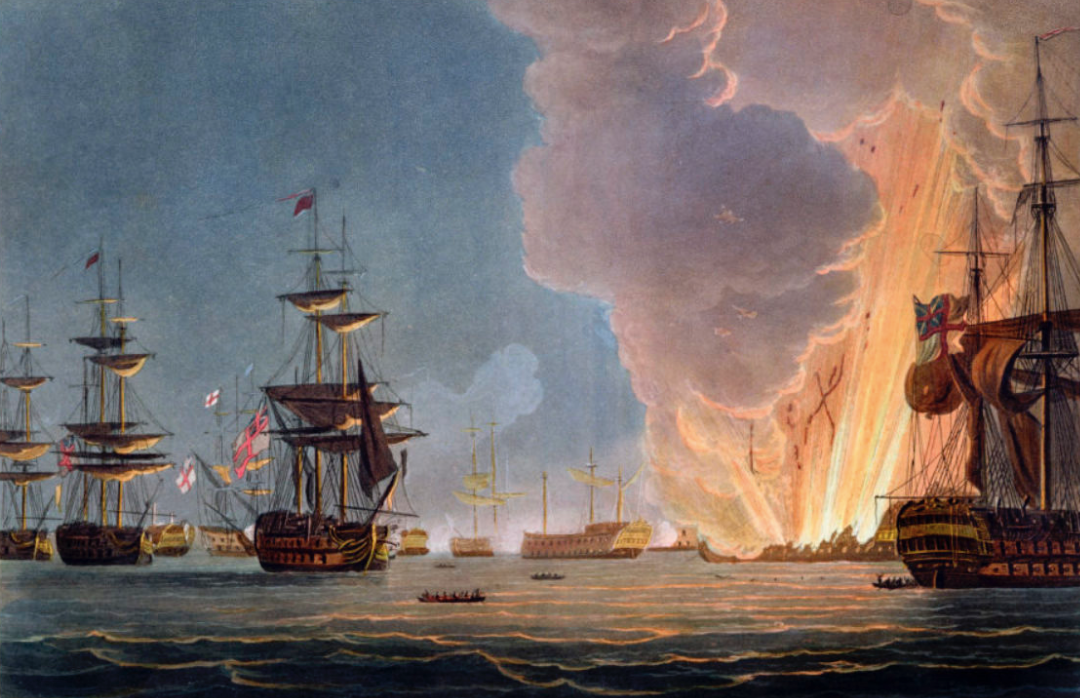1.8. 1798 Battle of Abu-Kir
Categories: Years of war and revolution , Calendar

The first day of August in 1798 brought one of the greatest clashes of the revolutionary and post-revolutionary years. It took place during Bonaparte's expedition just off the coast of Abu-Kir Bay, east of Alexandria.
The French fleet anchored there was dealt a total defeat by the Rear Admiral Sir Hotario Nelson, which was not seen again by the Rear Admiral François-Paul Brueys d'Aigalliers, who died at the latest during the explosion of his flagship L`orient.
Nelson literally stalked the French in the anchorage of the Gulf of Aboukir. No sooner had the French spotted the enemy than the British approached to attack, even though there were only a few hours of daylight left. The French were taken by surprise. Many were even on the coast, where they were resupplying and their vessels were anchored in shallow waters. The British took a risk and sailed right past the front of the French lines.
One of their ships did run aground, but the remaining ships, led by the Goliath, dropped anchor just off the port side of their French counterparts, which had no chance to hit because their guns were only on the starboard side. "Nelson sailed aboard the Vanguard at the head of the other half of his fleet, and then anchored off the French vessels on the other side so that he could fire at them from both sides," R. G. Grant in his book Battles.
The French put up stiff resistance, especially the aforementioned flagship L`orient with 120 guns on three decks. Nelson himself suffered a head wound, Brueys was torn apart by a cannonball. L`orient caught fire and at about 10pm all her powder stores exploded. The boom could be heard for 30 miles, and two British vessels were even set aflame by the wreck.
By dawn the French were completely decimated, and only three French vessels escaped destruction. Napoleon now cut off in Egypt. The Battle of the Nile (as the British call it), or by its French name, the Battle of Aboukir, represented the height...a victory quite unique in that the entire enemy fleet was annihilated. The French lost eleven ships of the line and two frigates.
"Such a defeat should have been reflected in the morale of the crew and commanders, but some French admirals to seek revenge," writes Jiří Kovařík in Trafalgar: Anatomy of a Naval Battle. Despite the blockade of Brest, the French squadron managed to set sail twice, in 1799 and 1801, arriving with impunity from the Atlantic to the Mediterranean, where they made a series of raids.
Sources: R. G. Grant, Battles: 5000 Years of Warfare, Jiri Kovarik, Trafalgar: Anatomy of a Naval Battle, www.historynet.com
The article is included in categories: